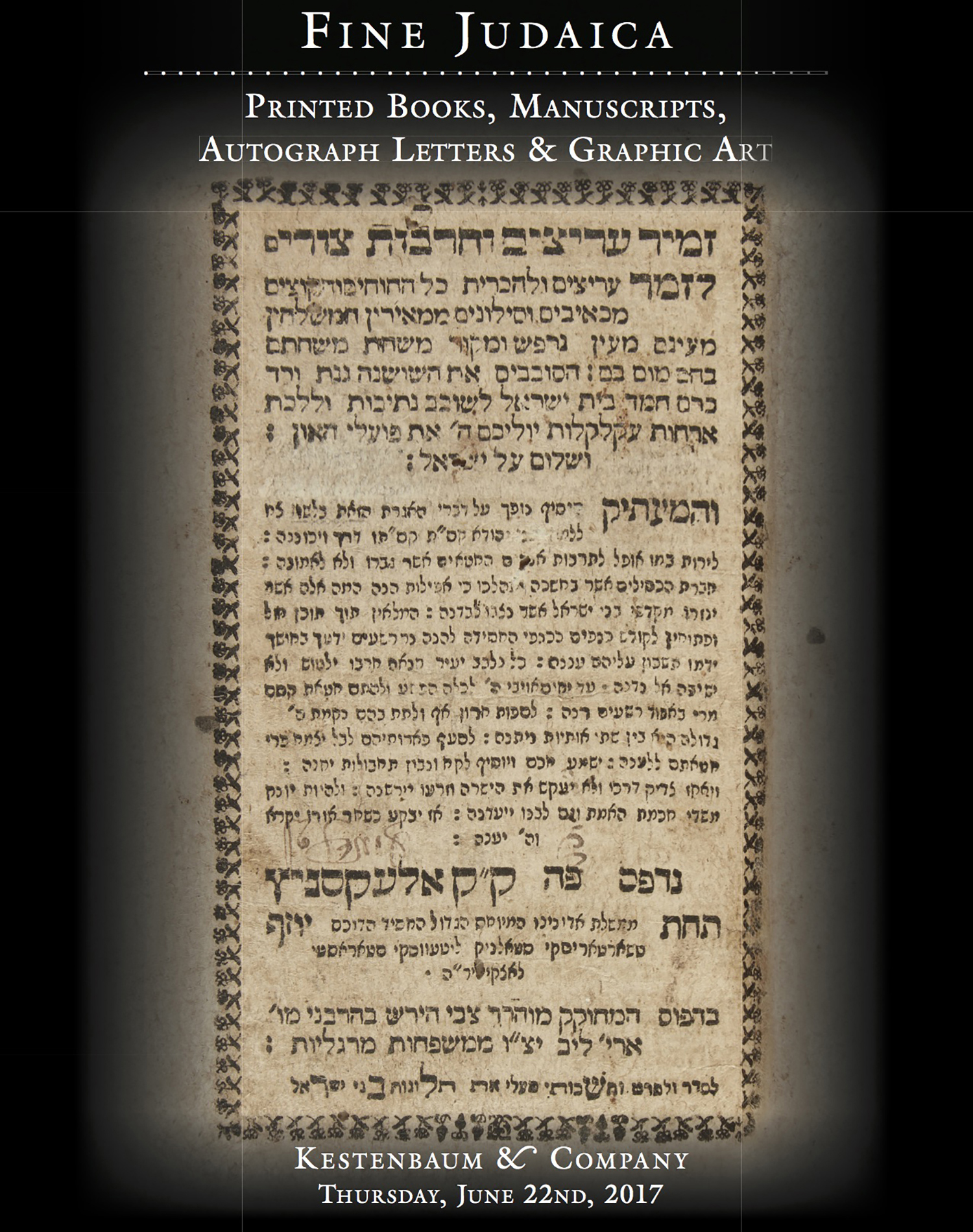Hatzalath Nephashoth VeKidush Hashem.

AUCTION 73 |
Thursday, June 22nd,
2017 at 1:00
Fine Judaica: Printed Books, Manuscripts, Autograph Letters & Graphic Art
Lot 102
(FRENCH-JUDAICA)
Hatzalath Nephashoth VeKidush Hashem.
Constantinople: c. 1763
Est: $3,000 - $5,000
<<Appeal to French Jewry on Behalf of the Community of Hebron.>>
In 1763, two of the sages of Hebron, R. Haim Rahamim Bajayo and R. Yitzhak Ze’evi were dispatched to Western Europe to raise funds on behalf of their heavily indebted community.
According to Abraham Ya’ari (Shluchei Eretz Yisrael, p. 586 fn.52) these emissaries issued appeals to aid them during the course of their fundraising journey, among them, this letter of recommendation from the “Pekidim” (Committee on behalf) of Hebron in Constantinople. The letter describes the desperate financial situation of the Jews of Hebron who had been forced to borrow from Turkish landlords the amount of twenty-five thousand pesos at the rate of 15% interest. The Jewish community of Constantinople was able to negotiate with the Turks slightly more generous terms whereby the loan would not come due for seven years - sufficient time for the emissaries from Hebron to enlist the support of the wealthy Jews of France. Most prominent among the printed signatories are Constantinople’s Chief Rabbis Abraham ben Judah Meyuhas and Solomon Alfandari.
The letter here is addressed by hand to Hananel de Milhaud of Avignon. One notes that in Hebrew the surname is spelled “Miliav.” This is as it should be. The Latin name of the village in the department of Gard was “Amiliavum.” With the expulsion of the Jews from Milhaud in 1306, they sought refuge in the Comtat-Venaissin, chiefly in Carpentras, and to a smaller degree in Avignon. See JE, Vol. VIII, p. 590. A second letter addressed to Hananel de Milhaud by these emissaries is in the collection of the National Library of Israel (ARC. 4* 199 / 170).
